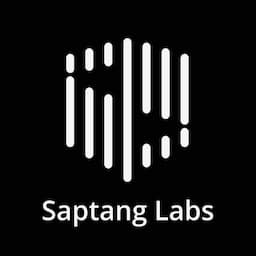6+ Malware analysis Jobs in India
Apply to 6+ Malware analysis Jobs on CutShort.io. Find your next job, effortlessly. Browse Malware analysis Jobs and apply today!
We are seeking a highly motivated and skilled Security Analyst to join our team in Bengaluru. As a Security Analyst, you will be responsible for monitoring and analyzing security events, identifying and mitigating vulnerabilities, and ensuring the overall security posture of our systems and applications. You will work closely with other members of the security team and other departments to protect our company's assets and data. You should possess a strong understanding of networking fundamentals, security tools, and SIEM technologies, and have a proven track record of effective log analysis and monitoring.
Responsibilities
- Monitor security logs and events from various sources, including SIEM tools, firewalls, intrusion detection/prevention systems, and other security devices.
- Analyze security incidents to identify root causes, assess impact, and recommend remediation steps.
- Conduct vulnerability assessments and penetration testing to identify security weaknesses in systems and applications.
- Develop and maintain security policies, procedures, and standards.
- Stay up-to-date on the latest security threats and vulnerabilities.
- Respond to security incidents and provide technical support during investigations.
- Configure and maintain security tools, including SIEM platforms (Splunk or QRadar preferred), vulnerability scanners, and intrusion detection/prevention systems.
- Perform log analysis and correlation to identify suspicious activity and potential security breaches.
- Collaborate with other IT teams to implement security best practices and ensure compliance with security policies.
- Prepare reports and presentations on security events, incidents, and trends.
- Participate in security audits and compliance assessments.
Job Title : Security Operations Centre (SOC) Analyst (L2/L3)
Experience : 6.5 to 9 Years
Location : Gurgaon (Hybrid – 3 Days Office / 2 Days WFH)
Budget : Up to ₹22 LPA
Joining : Immediate to 15–20 Days (Buyout Available)
Drive Date : Virtual Drive on 19th June
Note : Preference for candidates from Delhi NCR. North India-based candidates must be open to relocate to Gurgaon. No remote option available.
About the Role :
We are hiring a skilled SOC Analyst to join our Security Operations Centre (SOC).
The role involves proactive threat monitoring, incident response, forensic investigations, SIEM management, and collaboration across IT security domains to strengthen our cyber defense posture.
Mandatory Skills : SOC/NOC operations, SIEM tools (e.g., Splunk/QRadar), network security, malware analysis, vulnerability assessment, log analysis, Windows/Linux OS, packet capture tools (Wireshark/Netmon), firewalls, EDR, IDS/IPS, DLP, AV solutions.
🎯 Key Responsibilities :
- Monitor and analyze security events to identify threats across networks and endpoints.
- Perform threat detection, triage, investigation, and escalation of cybersecurity incidents.
- Execute forensic analysis and malware containment processes.
- Manage SIEM (health checks, alerting rules, integrations, vendor coordination).
- Conduct vulnerability assessments, patch impact analysis, and ensure timely remediation.
- Collaborate with internal IT teams for secure implementation of new initiatives.
- Analyze logs from security tools like SIEM, DLP, AV, EDR, etc.
- Prepare and maintain security documentation, SOPs, and incident reports.
🛠 Required Skills :
- 3 to 5 Years’ hands-on experience in a SOC/NOC environment.
- Expertise in SIEM solutions, firewalls, EDR, IDS/IPS, AV, DLP, and vulnerability scanners.
- Strong knowledge of Linux/Windows OS, system logs, and hardening practices.
- Proficient in packet capture analysis tools like Wireshark or Netmon.
- Excellent problem-solving and communication skills.
- Experience in security impact analysis for patches and third-party advisories.
✅ Preferred Certifications :
- CEH – Certified Ethical Hacker
- GIAC – GCIH / GCIA / GCED (or equivalent)
Key Responsibilities:
1. Threat Research: Work on researching emerging cyber threats specifically. You will monitor threat actor activities, study their tactics, techniques, and procedures (TTPs), and help identify potential risks.
2. Alert Triage and Incident Analysis: Support the analysis of security alerts generated by our in-house platform. You will work alongside the team to identify critical issues and provide timely
intelligence to help mitigate threats.
3. Data Collection and OSINT: Assist in gathering and analyzing data using Open Source Intelligence (OSINT) methodologies. You will help collect relevant information to support ongoing threat investigations.
4. Report Preparation: Contribute to the preparation of threat intelligence reports for internal and external stakeholders. You will learn how to convey complex technical information in a clear and
actionable manner.
5. SOP Development: Collaborate with the team to develop and refine Standard Operating Procedures (SOPs) for systematic threat analysis. Your input will help ensure that our procedures are efficient and scalable.
6. Cross-functional Collaboration: Work closely with various teams, including product development and data acquisition, to support the integration of new intelligence sources and improve the effectiveness of our threat intelligence platform.
Key Qualifications:
Educational Background: Completed a degree in Cybersecurity, Computer Science, Information Technology, or a related field.
Basic Knowledge of Cybersecurity: A foundational understanding of cybersecurity concepts, including web application security, threat analysis, and vulnerability assessment.
Familiarity with OSINT: Basic knowledge of Open Source Intelligence (OSINT) tools and methodologies for data collection.
Technical Skills: Familiarity with scripting languages such as Python, Ruby, or GO is a plus.
Experience with automation and data analysis tools will be advantageous.
Communication Skills: Strong written and verbal communication skills, with the ability to learn how to convey technical findings effectively.
Problem-Solving and Adaptability: A proactive attitude with strong problem-solving skills. You should be comfortable learning in a fast-paced and dynamic environment.
Additional Skills:
Interest in Cybersecurity Challenges: Participation in bug bounty programs, Capture The Flag (CTF) challenges, or cybersecurity competitions is a plus.
Willingness to Learn: A keen interest in developing skills in threat intelligence, threat actor profiling, and behavioral analysis.
Job Description
Cyber Threat Intelligence & Threat Hunting - Subject Matter Expert (B3-2)
Responsibilities:
Perform threat research, create actionable threat advisories, and derive hunting queries based on the evolving threat vectors.
Understand APT groups, Conduct deep dive technical analysis of cyber-attack tools, tactics, and procedures. Create hypothesis and perform active threat hunting.
Minimum Requirements:
10+ years of overall experience, 7+ years of experience in cyber threat intelligence, malware analysis (Reverse engineering)
Hands-on experience with writing threat hunting hypothesis & active threat hunting
Experience with YARA rule and OpenIOC signature creation.
Experience with multi-tiered mission-critical systems.
Experience in opensource sandbox and honeypots.
Preferred Certification
GIAC Cyber Threat Intelligence (GCTI)
C| TIA (Certified Threat Intelligence Analyst)
CCTIA by the NICCS
|
• Handling critical incidents/escalations, reviewing incidents and tracking towards closure • Good experience in SIEM tools, event logging and event analysis • Good knowledge in enterprise security products like Firewalls, IPS, Web/content Filtering tools, Compliance tools • Team Management, performance monitoring and prepare reports on weekly, monthly basis and share to stakeholders as needed • Good knowledge about common security attacks, targeted attacks • Good experience in forensic analysis, Packet Analysis tools like Wireshar • Assisting, mentoring L2/L3 analysts and groom them to move to next level • Contribute to continue monitoring and improvement of security posture of the organization • Having experience of managing team of 25+ team members across multiple locations.
|
|
• Primarily responsible for security event monitoring, management and response • Ensure incident identification, assessment, quantification, reporting, communication, mitigation and monitoring • Revise and develop processes to strengthen the current Security Operations Framework, Review policies and highlight the challenges in managing SLAs • Responsible for team & vendor management, overall use of resources and initiation of corrective action where required for Security Operations Center • Management, administration & maintenance of security devices under the purview of SOC which consists of state-of-the art technologies • Perform threat management, threat modeling, identify threat vectors and develop use cases for security monitoring • Responsible for integration of standard and non-standard logs in SIEM • Creation of reports, dashboards, metrics for SOC operations and presentation to Sr. Mgmt. • Co-ordination with stakeholders, build and maintain positive working relationships with them
|
Exp 1 to 8 yrs. Ctc 4 to 20 lpa
A malware analyst examines malicious software, such as bots, worms, and trojans to understand the nature of their threat. This task usually involves reverse-engineering the compiled executable and examining how the program interacts with its environment. The analyst may be asked to document the specimen's attack capabilities, understand its propagation characteristics, and define signatures for detecting its presence. A malware analyst is sometimes called a reverse engineer.
Security product companies, in industries such as anti-virus or network intrusion prevention, may hire malware analysts to develop ways of blocking malicious code. Large organizations in non-security industries may also hire full-time malware analysts to help protect their environment from attacks, or to respond to incidents that involve malicious software. Malware analysis skills are also valued by companies that cannot justify hiring full-time people to perform this work, but who wish their security or IT administrators to be able to examine malicious software when the need arises.



